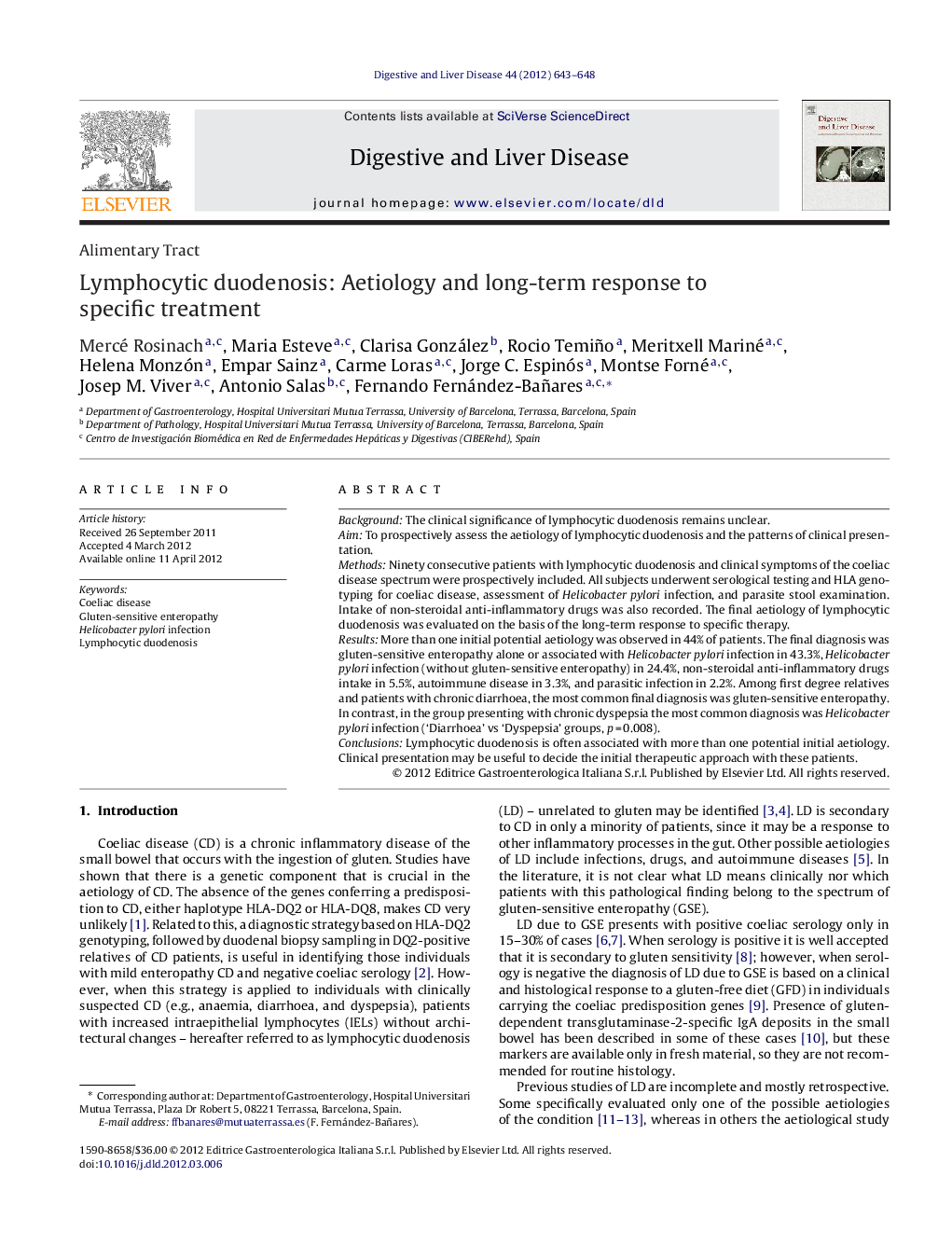| Article ID | Journal | Published Year | Pages | File Type |
|---|---|---|---|---|
| 3263066 | Digestive and Liver Disease | 2012 | 6 Pages |
BackgroundThe clinical significance of lymphocytic duodenosis remains unclear.AimTo prospectively assess the aetiology of lymphocytic duodenosis and the patterns of clinical presentation.MethodsNinety consecutive patients with lymphocytic duodenosis and clinical symptoms of the coeliac disease spectrum were prospectively included. All subjects underwent serological testing and HLA genotyping for coeliac disease, assessment of Helicobacter pylori infection, and parasite stool examination. Intake of non-steroidal anti-inflammatory drugs was also recorded. The final aetiology of lymphocytic duodenosis was evaluated on the basis of the long-term response to specific therapy.ResultsMore than one initial potential aetiology was observed in 44% of patients. The final diagnosis was gluten-sensitive enteropathy alone or associated with Helicobacter pylori infection in 43.3%, Helicobacter pylori infection (without gluten-sensitive enteropathy) in 24.4%, non-steroidal anti-inflammatory drugs intake in 5.5%, autoimmune disease in 3.3%, and parasitic infection in 2.2%. Among first degree relatives and patients with chronic diarrhoea, the most common final diagnosis was gluten-sensitive enteropathy. In contrast, in the group presenting with chronic dyspepsia the most common diagnosis was Helicobacter pylori infection (‘Diarrhoea’ vs ‘Dyspepsia’ groups, p = 0.008).ConclusionsLymphocytic duodenosis is often associated with more than one potential initial aetiology. Clinical presentation may be useful to decide the initial therapeutic approach with these patients.
